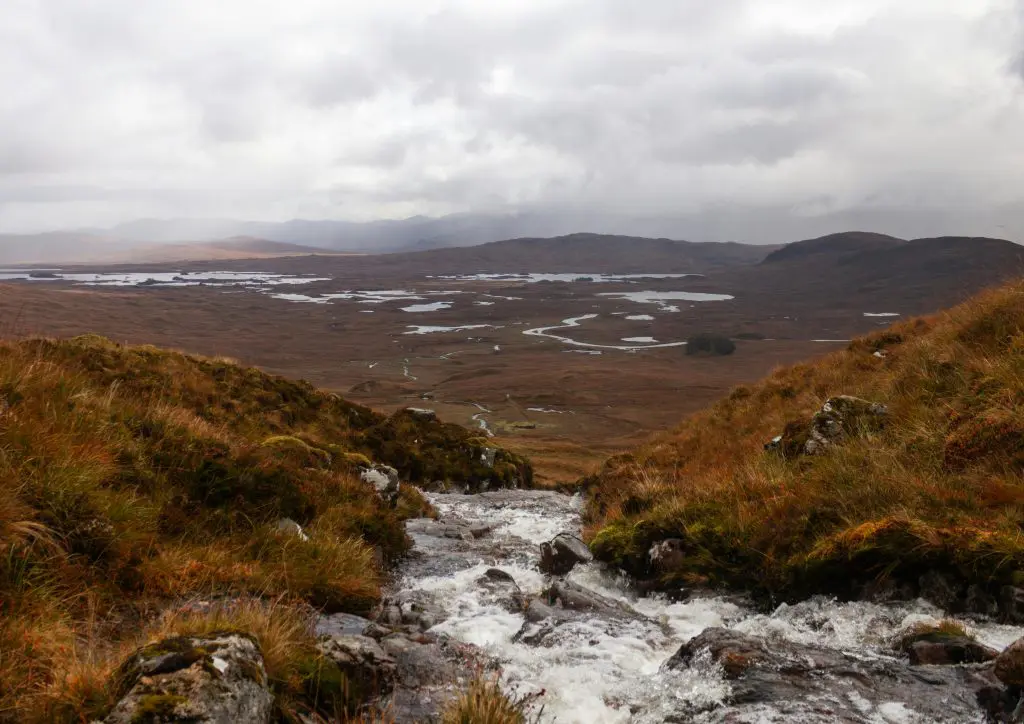
How Peatland Drainage Has Damaged Ireland’s Rivers: Insights from the SWAMP Project Decades of draining Ireland’s peatlands for industrial, domestic, and agricultural purposes have left a lasting impact on the country’s rivers and streams. A new report by University College Dublin (UCD), prepared for the Environmental Protection Agency (EPA), highlights how this legacy continues to […]
Decades of draining Ireland’s peatlands for industrial, domestic, and agricultural purposes have left a lasting impact on the country’s rivers and streams. A new report by University College Dublin (UCD), prepared for the Environmental Protection Agency (EPA), highlights how this legacy continues to degrade water quality in the midlands and threatens compliance with European environmental directives.
The study, part of the Strategies to Improve Water Quality from Managed Peatlands (SWAMP) project, offers a comprehensive look at how altered peatland hydrology contributes to nutrient pollution, biodiversity loss, and increased downstream risks.
The SWAMP project was launched to address major knowledge gaps about how managed peatlands affect water quality. It focused on streams in Ireland’s midlands — a region historically covered by raised bogs, many of which have been drained for peat extraction or other land uses. The research measured water chemistry, monitored aquatic biodiversity, evaluated treatment measures, and developed hydrological models for peatland response.
The key findings from the Swamp project include:
The study found that the drainage of peatlands over decades has caused the release of nutrients, acids, and carbon-rich water into nearby streams. Some water bodies near protected peatlands also showed poor water chemistry, revealing widespread legacy effects from historical drainage.
Streams affected by degraded bogs showed reduced biodiversity among aquatic species. However, the research noted that downstream impacts were more closely tied to upstream water quality than to bog status alone — highlighting the need for site-specific ecological indices to evaluate restoration success.
While sedimentation ponds helped reduce suspended solids near cutaway bogs, they failed to address dissolved pollutants. Biochar treatments at the field’s edge produced inconclusive results, suggesting that current mitigation methods are inadequate without further research and refinement.
The report emphasizes that peatland drainage alters hydrology and biogeochemistry, intensifying pollution, flood risks, and nutrient loss — all of which are worsened by climate change. These issues prevent Ireland from fully complying with the EU Water Framework Directive.
The study calls for stricter regulations and improved monitoring, especially for licensing new or continued peat extraction projects. It stresses the importance of addressing pollution from unlicensed small peat operators and domestic turf-cutting, which affect large land areas but often go unregulated.
The SWAMP report lays out a range of immediate and long-term actions:
Stronger regulations for peat extraction licenses, including water quality controls tailored to specific locations.
Large-scale rewetting of drained peat soils to reduce nitrogen and carbon losses, paired with long-term monitoring.
Rehabilitation projects not only on public lands like Bord na Móna bogs but also on privately-owned bogs.
Implementation of site-specific treatment technologies, instead of relying on a one-size-fits-all solution.
Development of standardised models and improved ecological assessment tools for restoration planning.
It also highlights that 106 surface water bodies in Ireland are currently impacted by peat extraction and drainage, according to the Draft River Basin Management Plan 2022–2027.
The SWAMP project’s findings underline the urgent need for interdisciplinary cooperation among government agencies, scientists, and landowners. Reversing the trend of water quality decline will require decades of coordinated efforts, including rewetting, improved data collection, and climate-adaptive management.
According to the report:
‘Reducing pollution from drained bogs will be largely addressed by restoration and rehabilitation projects that affect not only Bord na Móna bogs but also privately-owned bogs within a catchment.’
In short, the future health of Ireland’s rivers — and its obligations under EU law — will depend on how quickly and effectively these peatland challenges are addressed.
At All-Ireland Sustainability, we’re committed to building a greener, fairer island—together. Stay informed on the latest environmental initiatives, community action, and policy developments shaping sustainability across Ireland, North and South.
👉 Sign up for our newsletter today and be the first to hear about upcoming events, expert insights, and ways to get involved.
Whether you’re a seasoned advocate or just starting your journey, new members are always welcome—your voice matters.
Subscribe now and be part of the All-Ireland Sustainability network.